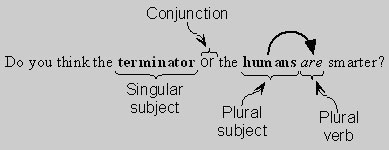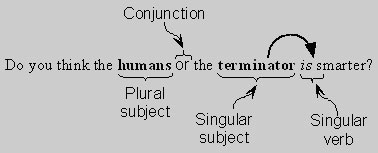Compounded and non-compounded subjects
Some words or phrases join together or compound two subjects together, like in this case:
Chocolate and cake are nice desserts.
‘Chocolate and cake’ is a compound subject made up of two things - ‘chocolate’ and ‘cake’. Because it is made up of more than one thing, it requires a plural verb - ‘are’.
Other words or phrases, however, don’t compound:
Michael Jordon, along with Magic Johnson, is no longer playing basketball.
It seems like there are two subjects in this sentence, so why don’t we use a plural verb? Well, there’s actually only one subject - ‘Michael Jordan’. The phrase ‘along with Magic Johnson’ is used to add information or modify the subject ‘Michael Jordan’. You can easily remove it and the sentence is still complete:
Michael Jordon is no longer playing basketball.
Or you can put it at the end instead. Either way, it emphasises that ‘Michael Jordon’ alone is the subject and needs the singular verb ‘is’.
Michael Jordon is no longer playing basketball, along with Magic Johnson.
‘Or’ and ‘nor’ don’t compound two subjects together either:

So the conjunction ‘or’, unlike ‘and’, doesn’t join together the two subjects into one compound subject. However, we still need to pick a verb for the sentence. You pick the verb to match the subject that is closer to the verb - in this case the noun ‘humans’ - so we pick the plural verb ‘are’. The sentence could have been written a different way though:

This time, since the ‘terminator’ subject is closer to the verb, we pick a singular form of the verb - ‘is’.
Click here to move on to the next topic: Pairs of things